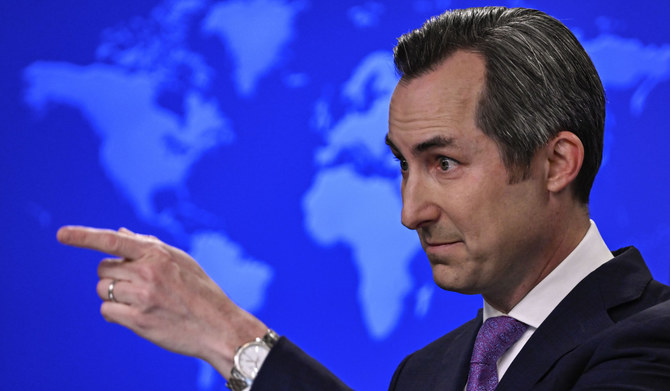WASHINGTON: The United States said Monday it did not expect policy changes from Iran after voters elected reformist candidate Masoud Pezeshkian, and downplayed chances to resume dialogue.
“We have no expectation that this election will lead to a fundamental change in Iran’s direction or its policies,” State Department spokesman Matthew Miller told reporters.
Miller said supreme leader Ayatollah Ali Khamenei was expected to call the shots in Iran, an adversary of the United States since the 1979 Islamic revolution.
“Obviously, if the new president had the authority to make steps to curtail Iran’s nuclear program, to stop funding terrorism, to stop destabilizing activities in the region, those would be steps that we would welcome,” Miller said.
“But needless to say, we don’t have any expectation that that’s what’s likely to ensue.”
Asked if the United States was at least willing to reopen diplomacy with Iran after Pezeshkian’s election, Miller said: “We have always said that diplomacy is the most effective way to achieve an effective, sustainable solution with regard to Iran’s nuclear program.”
But at the White House, National Security Council spokesman John Kirby, asked if the United States was ready to resume nuclear talks with Iran, said emphatically, “No.”
“We’ll see what this guy wants to get done, but we are not expecting any changes in Iranian behavior,” Kirby said.
President Joe Biden took office in 2021 with hopes of returning to a 2015 nuclear deal with Iran that was negotiated under former president Barack Obama and trashed by his successor Donald Trump, who imposed sweeping sanctions on Iran.
But talks, negotiated through the European Union, broke down in part in a dispute over to what extent the United States would remove sanctions on Iran.
Relations have deteriorated further since the October 7 attack on US ally Israel by Hamas, which receives support from Iran.
























